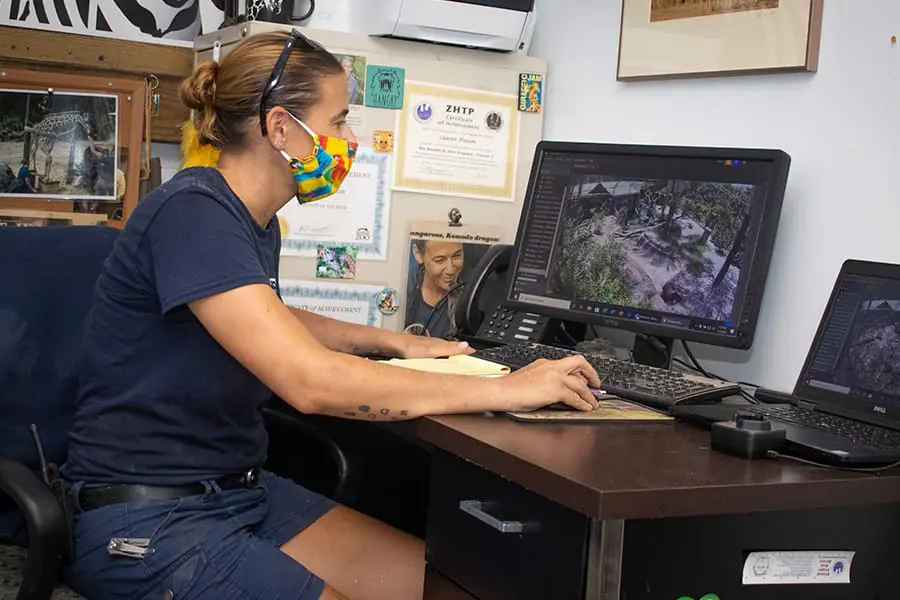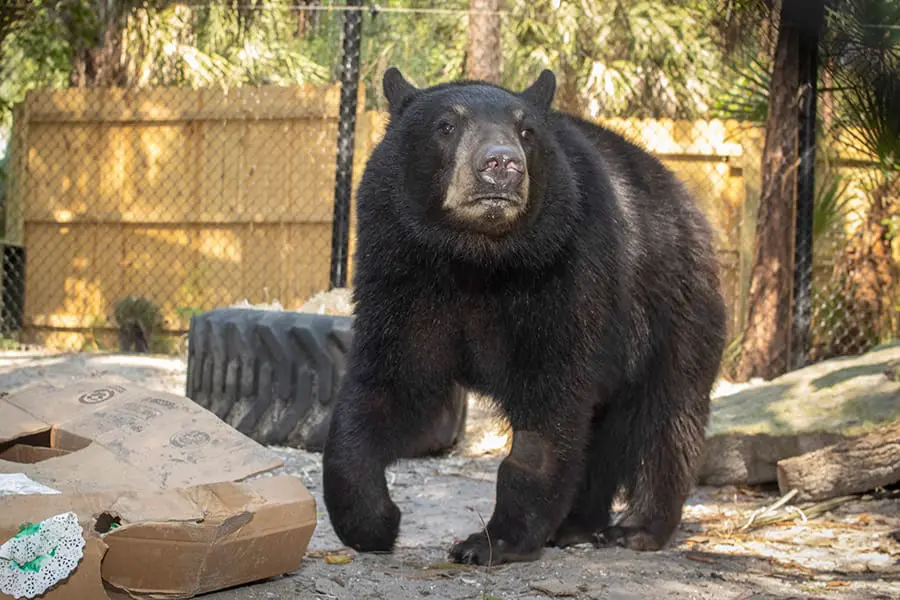

With a camera system in place, we can monitor the animals 24/7 from anywhere in the world.
Every year, attendees of our Safari Under the Stars gala have the opportunity to rally around a specific cause as part of the Give From the Heart appeal. In the past, these projects have included our Exceptional Nature Space, the jaguar habitat expansion, a home for rescued Florida black bears and, most recently, breeding spaces for endangered Florida grasshopper sparrows.
This year, we’re asking for your help to install at least one camera in every Zoo habitat.
Since keepers cannot keep an eye on every animal all the time or be at the Zoo all hours of the day, it’s impossible for us to develop a full understanding of our residents’ lives through in-person observation alone—especially for species that are nocturnal or reclusive in nature.
Camera systems help us paint a nearly complete picture of how animals spend their day by showing us how they play, when they eat, who they associate with and whether they’re breeding—and each feed can be monitored from our computers or phones anywhere in the world.
We’ve identified two areas where this technology is most urgently needed.
As you probably know, Brody the bear is dealing with chronic health issues that affect his hips and legs. Because he has such a strong relationship with his caretakers, we suspect Brody behaves differently when people aren’t around.
Is Brody running and climbing to the point of overexertion? Is he utilizing the bedding we provide? Does he avoid certain areas of his habitat? By monitoring him unobtrusively, we can answer these questions in service of a better treatment plan.

Cameras will show us what Brody does when people aren’t around.
Since arriving last year, Grévy’s zebra stallion Bakari has been observed mounting all three of our mares on many occasions—leaving us confident that foals are on the way. Females will instinctually break away from the herd when they are ready to give birth and stay away until the foal is a few weeks old, meaning each of our mares will need her own secure space with as little intrusion as possible. Cameras will allow us to monitor the foals’ progress in this critical first stage of life while giving these animals the privacy they need.
Wild Grévy’s zebra populations have declined by 40% over the past three decades due to habitat loss and competition with livestock. This means every single birth is vitally important to the long-term survival of this species—and we need to do everything we can to ensure foals born at the Zoo thrive in the critical first stages of life.
We invite you to join us for virtually for Safari Under the Stars this Saturday at 7 p.m. to learn more about the importance of camera systems to animal wellness. If you’d like to help us invest in this technology, click here to make a contribution.
